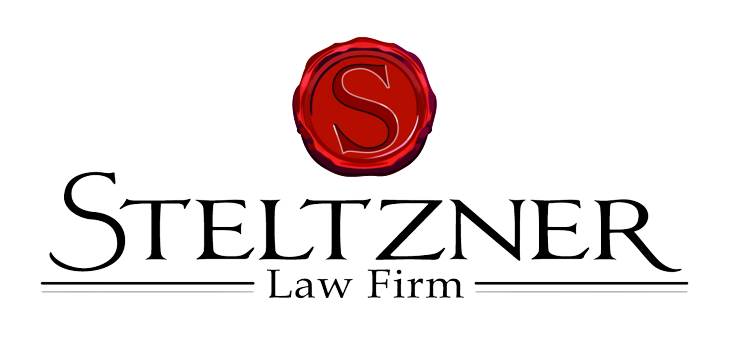Navigating Estate Planning and Probate in North and South Carolina
In our ever-changing world, it is crucial to plan for the protection and distribution of your assets. Estate planning and probate are essential legal processes that involve safeguarding your wealth and providing for your loved ones. North and South Carolina have unique estate planning and probate laws, making in-depth knowledge and understanding of these processes vital. This blog post aims to inform you of the key elements of estate planning and probate in North and South Carolina, positioning you to make well-informed decisions for your family’s financial future.
At a time of uncertainty, our experienced and compassionate legal team brings a wealth of knowledge and understanding, taking into account your unique situation and personal goals. Our combined three decades of law firm and real estate closing experience enables us to provide expert guidance and support during the estate planning and probate process. Let us assist you in navigating the complexities of North and South Carolina’s legal landscape, delivering cost-effective and personalized legal solutions to secure your assets and ensure the well-being of your loved ones.
In this comprehensive guide, we will walk you through the essential aspects of estate planning and probate, including creating a will or trust, naming beneficiaries, minimizing taxes, and selecting a durable power of attorney and health care proxy. We will also shed light on probate administration and the role of an executor or personal representative. Stay tuned as we delve into these critical topics and discover valuable insights to provide you with peace of mind and a secure financial future for your family.
Creating a Will or Trust: Choosing the Right Vehicle for Your Estate
A cornerstone of estate planning is determining the appropriate legal vehicle to distribute your assets. Both wills and trusts serve distinct purposes and come with their unique advantages. Understanding these differences will help you make an informed decision:
- Wills: A will is a legal document that outlines your wishes for the distribution of your assets and the guardianship of any minor children after your death. Wills are subject to probate, a court-supervised process that validates the will and ensures its proper administration.
- Trusts: A trust is a legal arrangement that allows you to transfer and manage assets for the benefit of your named beneficiaries. Trusts can be used to control the timing and manner of asset distribution and may avoid probate.
Our knowledgeable team can help you evaluate the benefits and drawbacks of each option and craft a comprehensive estate plan that aligns with your goals.
Naming Beneficiaries and Minimizing Taxes: A Holistic Approach
Properly naming beneficiaries and minimizing taxes are essential in preserving your assets for your loved ones. A strategic approach to estate planning can help protect your wealth and ensure a smooth transfer:
- Beneficiary designations: Certain assets, such as life insurance policies and retirement accounts, allow you to name beneficiaries directly. Ensure this information is up-to-date and consistent with your overall estate plan.
- Taxes: Create strategies to minimize estate taxes and other applicable taxes in both North and South Carolina. Consider the use of gifts, trusts, and other estate planning tools to distribute your assets tax-efficiently.
We focus on developing tax-efficient estate planning strategies tailored to your unique circumstances, helping you pass on your legacy to future generations with minimal tax burdens.
Durable Power of Attorney and Health Care Proxy: Preparing for Life’s Unknowns
A well-designed estate plan accounts for possible incapacity, ensuring your personal and financial affairs are managed according to your wishes:
- Durable Power of Attorney: A legal document that grants a designated person the authority to act on your behalf regarding financial and legal matters if you become unable to manage your own affairs.
- Health Care Proxy: This document designates an individual to make medical decisions on your behalf in the event that you’re unable to do so yourself.
Our professionals understand the importance of preparing your estate plan for every contingency. We will guide you through the processes of selecting and authorizing trusted individuals to manage your affairs in times of uncertainty.
Probate Administration and Your Executor: Ensuring a Smooth Process
Probate administration is the legal process by which your assets are distributed according to your will or based on intestacy laws when no will exists. A critical aspect of this process is choosing an executor or personal representative:
- Selecting an Executor: An executor is a trusted individual or institution responsible for administering the probate process, including locating and valuing assets, paying debts, and distributing assets to beneficiaries.
- Probate Process: Probate can be time-consuming and costly. Our experienced team can assist your executor in navigating the probate process, offering guidance and support to ensure your estate is properly distributed.
Conclusion
Well-informed estate planning and probate decisions are essential in safeguarding your assets, ensuring the financial well-being of your family, and easing the burden on your loved ones during a difficult time. A thorough understanding of processes such as creating wills or trusts, naming beneficiaries, minimizing taxes, and selecting a durable power of attorney and health care proxy will provide peace of mind and a secure financial future for those who matter most.
Allow our team of compassionate and experienced legal professionals to support you in navigating the intricacies of North and South Carolina’s estate planning and probate laws. Reach out to us and explore how our tailored and cost-effective legal solutions can create a lasting impact on your family’s financial well-being.
